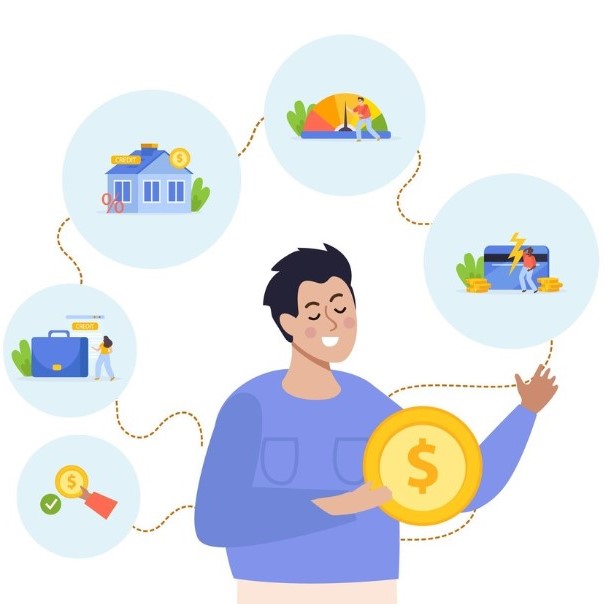Facing overwhelming debt is a significant burden, but what makes it even more challenging is when you’re subjected to aggressive and unethical bank harassment from recovery agents. In India, while lenders have a right to recover their dues, this right comes with strict regulations designed to protect borrowers. Unfortunately, many individuals are unaware of their rights, making them vulnerable to harassment and illegal pressure.
At Bank Harassment, we believe in empowering you with knowledge and a legal framework to navigate debt recovery. Understanding common debt recovery tactics and knowing when your rights are being violated is the first step towards seeking effective debt settlement and regaining control of your financial life.
Common (and Often Illegal) Debt Recovery Tactics You Might Encounter:
Financial institutions and their recovery agents often employ various methods to retrieve outstanding dues. While some are legitimate, others cross the line into harassment and illegality. Here are some tactics you might face:
-
Relentless Calls at Inappropriate Hours: You might receive numerous calls throughout the day, often extending late into the night or early morning. This is a common tactic to wear you down.
- Your Right: As per RBI guidelines, recovery agents are generally allowed to contact you only between 7:00 AM and 7:00 PM. Calls outside these hours are a direct violation and constitute bank harassment.
-
Abusive or Threatening Language: Agents might use harsh, vulgar, or threatening language, or resort to intimidation tactics.
- Your Right: RBI mandates that recovery agents must use polite and civilized language. Any form of abuse, threats, or physical intimidation is strictly prohibited and falls under bank harassment.
-
Contacting Friends, Family, or Employers: They might disclose your debt details to unauthorized third parties, including your relatives, neighbors, or even your workplace, attempting to publicly shame you or pressure others to pay on your behalf.
- Your Right: Your privacy is paramount. Lenders cannot disclose your debt information to unauthorized third parties without your consent. This is a serious violation of privacy norms and a form of bank harassment.
-
Misrepresentation and False Threats: Agents might falsely claim to be legal officers, threaten immediate arrest, or claim they will seize your assets for unsecured loans (like personal loans or credit card debt) without a proper court order.
- Your Right: Recovery agents cannot misrepresent their identity or the legal consequences of non-payment. They cannot threaten actions they are not legally authorized to take, especially the seizure of assets for unsecured loans without due legal process. These are scare tactics and forms of bank harassment.
-
Unannounced or Aggressive Home/Workplace Visits: While agents may conduct visits, they often do so unannounced, with an aggressive demeanor, or refuse to leave when asked.
- Your Right: Recovery agents should ideally schedule appointments for visits. They must respect your privacy and cannot behave in an intimidating or coercive manner at your residence or workplace. Unsolicited, aggressive visits are a form of bank harassment.
-
Refusal to Provide Loan Details or ID: They might refuse to provide specific details of your outstanding debt or their identification.
- Your Right: You have the right to know the exact details of your outstanding debt, including the principal, interest, and any penalties. Recovery agents must also carry and present their official identification and authorization letter from the bank.
How Advocating Against Bank Harassment Protects Your Rights
Dealing with these tactics alone can be exhausting and demoralizing. This is where professional help becomes invaluable. At Bank Harassment, we provide a legal shield and a strategic path to debt relief:
- Stopping Harassment Legally: We document all instances of bank harassment and send formal legal notices to the bank and recovery agencies, citing violations of RBI guidelines and consumer protection laws. This often leads to an immediate cessation of unethical practices.
- Expert Guidance on Debt Settlement: While our primary focus is stopping harassment, our expert panel can guide you on the viability of debt settlement as a long-term solution. We help you understand the nuances of this process, where a lump sum lower than the total outstanding amount is paid to become debt-free.
- Ensuring Legal Compliance: We ensure that all communications and potential agreements for debt settlement are legally sound and properly documented, aiming for a formal settlement letter and a “No Dues Certificate” upon payment. This protects you from future claims.
- Navigating Your Credit Score Impact: While debt settlement does impact your credit score (it’s marked “settled,” not “closed”), the damage is generally less severe and shorter-lived than other severe debt actions. Our team provides crucial guidance on how to become a credit score builder post-settlement, helping you rebuild your financial reputation.
Rebuilding Your Credit Score After Debt Settlement
The journey to being debt free doesn’t end with settlement. At Bank Harassment, we empower you with strategies to effectively become a credit score builder after your debt settlement:
- Consistent, Timely Payments: The most important step is to make all future payments (on any remaining or new credit) strictly on time.
- Secured Credit Cards/Small Loans: Consider acquiring a secured credit card or small, manageable loans that you can pay off consistently to establish a positive payment history.
- Low Credit Utilization: Keep your credit card balances low (ideally below 30% of your limit).
- Monitor Your Credit Report: Regularly check your credit report for inaccuracies and to track your progress.
Don’t Let Your Rights Be Violated
You have rights as a borrower in India. Don’t suffer in silence or let aggressive tactics push you into despair. If you are facing unfair debt recovery practices or are overwhelmed by your EMI payments, it’s time to act.
Contact us at Bank Harassment today. Our expert panel is here to protect your rights, stop bank harassment, and guide you towards effective debt relief and a truly debt free and financially stable future.



